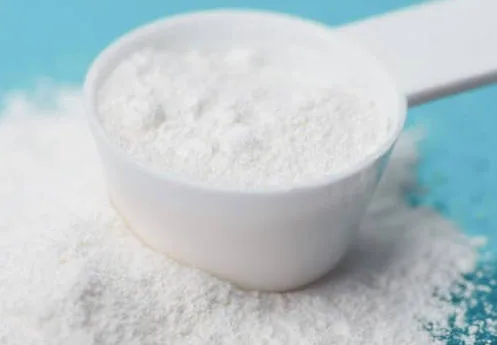Taurine, an amino acid involved in many biological and physiological functions, could hold the key to living a healthier and longer life, according to a new study published in Science. Scientists from Colombia University and some from across the world conducted a series of animal and human studies to determine whether this amino acid played a role in aging and longevity.
They found that taurine blood serum levels declined with age in mice, monkeys, and humans. In fact, seniors (human ones, that is) could have as much as 80% less taurine than younger folks. They increased the lifespan of female mice by as much as 12% (equivalent to seven or eight human years) with taurine supplements. They also improved the health span of both mice and monkeys.
What is taurine, and what happens to levels as we age?
Taurine is a sulfur-containing amino acid that we get from food, although our bodies also produce it.
Foods such as shellfish, tuna, algae, seaweed, turkey, chicken, and beef – and to a lesser extent dairy – contain taurine. It’s also used in energy drinks and by athletes to boost energy levels, enhance performance, and reduce muscular fatigue during exercise.
Vegetarians and vegans may struggle with taurine levels; with the exception of algae and seaweed, we can’t get it from plants.
One study showed that 60-year-olds (humans, in this case) had levels that were only about one-third of those found in five-year-olds. That’s a big drop!
Increased Lifespan and Health Span in Mice
In another study, researchers gave groups of middle-aged mice daily doses of 500 mg and 1,000 mg of taurine per kilogram of body weight. Both groups lived longer than the mice who didn’t get the taurine.
To see whether taurine could improve the health of older mice, they analyzed parameters related to bone, muscle, brain, pancreas, fat, the gut, and the immune system. The mice on taurine had reduced fat levels, increased muscle strength, improved neuromuscular coordination, improved bone density, improved glucose tolerance, better memory, and less anxiety.
Making Middle-Aged Monkeys Healthier
Middle-aged monkeys were given a dose of 250 mg/kg body weight once a day for six months. At the end of the study, these monkeys had:
1. Lower body fat percentages,
2. Increased bone density,
3. Reduced fasting blood glucose levels,
4. Improved liver function, and
5. Better immune systems.
What happened at the cellular level?
The researchers went further, analyzing the effect of this amino acid on cells. They assessed a number of markers of a healthy lifespan: telomere function, oxidative stress, immune system function, protein translation, and stem cell maintenance.
All the markers showed that taurine deficiency results in the kind of changes we associate with aging.
How do taurine levels affect health markers in humans?
Researchers studied over 50 risk factors in 11,966 subjects of the EPIC-Norfolk study. While the authors note that association does not equal causation, they did find some interesting things:
1. High levels of taurine in the blood were associated with a lower BMI (body mass index), lower waist-to-hip ratio, and less abdominal obesity.
2. High levels of taurine metabolites were associated with a reduced prevalence of Type-2 diabetes, as well as lower blood glucose levels.
3. Higher taurine levels were associated with lower levels of CRP (C-reactive protein), which is a marker for inflammation.
The link between exercise and taurine
Sprinters, endurance runners, and bodybuilders were studied to see whether taurine and its metabolites responded to exercise. Researchers also studied obese individuals who went through 24 weeks of exercise.
They found a significant increase in this amino acid after exercise, which suggests that some of the health benefits of exercise may be explained by increased blood taurine concentration.

What does this mean to me?
As we get older, the levels of taurine in our blood and tissues decline. And if you’re on a plant-based diet, you may not be getting enough of this important amino acid from your food.
Since higher taurine levels were associated with increases in both lifespan and health span, you might want to consider a supplement. We like NOW taurine, which you can get in 500 mg capsules or a powder to add to your smoothie.
Take note
Be aware that animal studies use high levels of taurine, much higher than anyone recommends for humans. Some say you shouldn’t go over 3,000 mg a day, although there are no known toxic effects in humans. In its 2012 guidelines, the European Food Safety Authority suggested a limit of 6,000 mg per day. That’s still a fraction of the amount used on those middle-aged monkeys.
The bottom line
Taurine is certainly a very appealing aging support tool. And remember that exercise increases your taurine levels – and that’s only one of its many benefits. We hope to see more taurine studies on humans in the near future. It shows real promise as a safe, natural anti-aging nutrient.
References
https://www.science.org/doi/10.1126/science.abn9257
https://www.cuimc.columbia.edu/news/taurine-may-be-key-longer-and-healthier-life
https://www.epic-norfolk.org.uk/about-epic-norfolk/
https://www.efsa.europa.eu/en/efsajournal/pub/2736
Read more from Longevity
If you enjoy this article, then read why pearl powder is becoming a popular beauty supplement.



![women [longevity live]](https://longevitylive.com/wp-content/uploads/2020/01/photo-of-women-walking-down-the-street-1116984-100x100.jpg)










